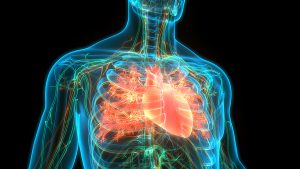
Patients with atherosclerosis have fatty deposits or plaque that can build up over many years. When these deposits are dislodged, they can travel to smaller vessels and block blood flow to vital organs, causing heart attacks and stroke.
There are many contributing factors to atherosclerosis, including high blood pressure and high cholesterol. Although these risk factors are well known, addressing them doesn’t eliminate the risk of developing the disease. This is what led researchers to study the gap that is left in treatment.
Over the past few years, researchers have found that addressing inflammation may be a way to fill this gap. It is commonly known that cardiovascular disease is more common in people with chronic inflammatory diseases such as chronic infection of the gums and rheumatoid arthritis.
So, a type of immune memory called trained immunity is now helping researchers with a biological mechanism to help patients with heart health. Trained immunity happens in innate immune cells, but these cells do not form a memory in the classic sense.
These cells remember previous exposures through changes to their genes and metabolism. “When these cells encounter a stimulus in the future, whether related or unrelated to the original one, they can respond faster and stronger,” said George Hajishengallis, an immunologist at the University of Pennsylvania in Philadelphia.
Further Research Needed
While this is an extraordinary idea with the potential to help physicians target treatment plans for those with cardiovascular inflammation, much more research is needed to understand the concept fully.
It is hoped that such interventions could leave patients with strong arteries and better overall cardiovascular health. Along with cardiovascular events, researchers believe that trained immunity may also help with other types of illness and disease.